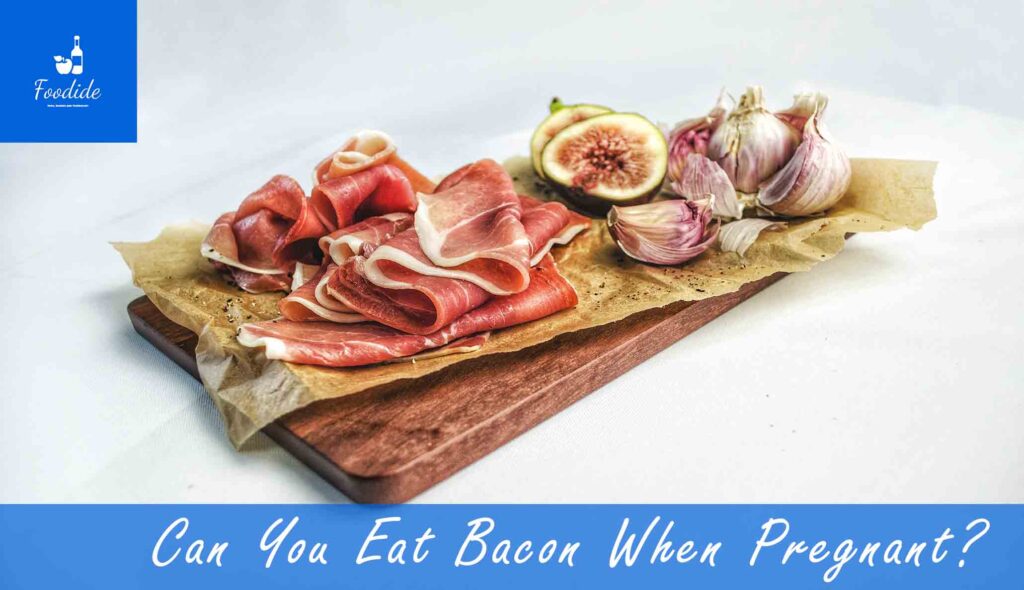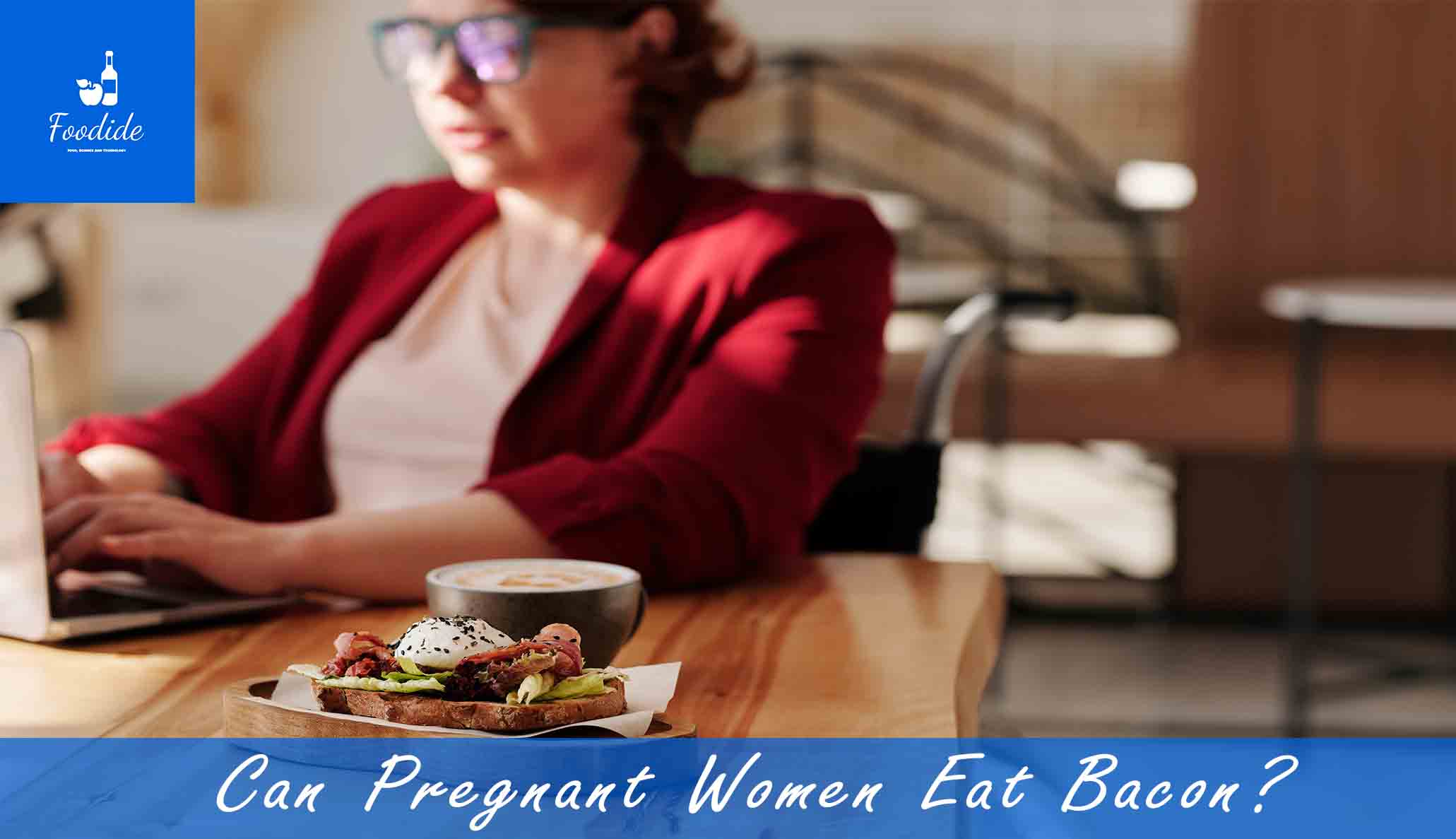Pregnancy is a critical period during which a woman’s diet can significantly impact her health and the health of her developing fetus. It is essential to answer the question, “Can Pregnant Women Eat Bacon” So expectant mothers can pay close attention to their dietary choices and ensure that they consume foods that are safe for both of them.
After reading this article, readers will have a comprehensive understanding of bacon consumption during pregnancy. They will be able to make informed decisions about whether or not to consume this food during this critical period.
Can Pregnant Women Eat Bacon
There is often confusion about whether certain foods, such as bacon, are safe to consume during pregnancy. The topic of bacon consumption during pregnancy is important for several reasons.
Firstly, bacon is a popular food in the US and is consumed by many people regularly. However, there is concern among pregnant women about the potential risks associated with consuming bacon during pregnancy, and there is a lack of clear guidance on this topic.
Secondly, bacon is a source of protein and other nutrients that are important for a healthy pregnancy, but it also contains nitrates and other additives that may be harmful. Therefore, evaluating the nutritional benefits and risks of bacon consumption during pregnancy is crucial to provide practical advice to pregnant women.

I will cover every aspect of bacon consumption during pregnancy, from the nutritional content of bacon to food safety guidelines for pregnant women.
It will also explore the history and cultural significance of bacon consumption in the US and provide practical advice and information to help readers make informed decisions about their dietary choices during pregnancy.
Nutritional Content of Bacon
Bacon is a popular breakfast food in the US made from cured pork belly. It is typically consumed fried or grilled and is known for its salty and savory taste.
Bacon is a source of protein, fat, and several micronutrients. However, it is also high in sodium and saturated fat, which may have adverse health effects if consumed excessively.
The macronutrient composition of bacon varies depending on the type and brand of bacon. On average, a slice of bacon contains around 40-50 calories, 3-4 grams of protein, and 3-4 grams of fat.
Bacon is also a source of micronutrients such as vitamins A, D, and B12, iron, potassium, phosphorus, and zinc. However, it is essential to note that bacon is also high in sodium, with a slice containing around 135-185 milligrams.
Health Concerns of Bacon Consumption during Pregnancy
Consuming bacon during pregnancy may harm the mother and the developing fetus. Some of the critical health concerns associated with bacon consumption during pregnancy include the following.

Increased risk of gestational diabetes
Bacon is high in saturated fat, which can contribute to insulin resistance and increase the risk of developing gestational diabetes if Consumed in excessive amounts, which affects up to 10% of pregnant women in the US.
Higher risk of high blood pressure
Bacon is high in sodium, which can contribute to high blood pressure. High blood pressure during pregnancy can lead to complications such as preeclampsia, a severe condition affecting both the mother and the developing fetus.
Possible link to cancer
Bacon and other processed meats are often treated with nitrates and nitrites, known carcinogens that may be associated with harmful health outcomes, such as an increased risk of childhood respiratory infections.
Bacon often contains nitrates, which are added to preserve the meat and give it a pink color. Some studies have suggested that consuming processed meats during pregnancy may increase the risk of certain types of cancer in the mother and the offspring.
However, it is essential to note that the risk of harm from bacon consumption during pregnancy is generally considered relatively low, especially if consumed in moderation.
Can pregnant women eat turkey Bacon
Moreover, some types of bacon, such as turkey bacon, maybe a safer alternative for pregnant women as they often contain fewer additives and are lower in fat and sodium.
Risk of Processed meat
Several studies have suggested that consuming processed meats, including bacon, during pregnancy may be associated with harmful health outcomes for both the mother and the baby.
For example,
A study published in the American Journal of Epidemiology found that high processed meat intake during pregnancy was associated with an increased risk of preterm birth.
A study published in the International Journal of Epidemiology found that a high intake of cured or processed meat during pregnancy was associated with a higher risk of childhood obesity.
Food Safety Guidelines for Pregnant Women
Importance of Food Safety during Pregnancy
Food safety is crucial during pregnancy as pregnant women are at a higher risk of developing foodborne illnesses, which can lead to serious health complications for both the mother and the baby.

According to the Centers for Disease Control and Prevention (CDC), approximately 1 in 6 Americans suffers from a foodborne illness each year, and pregnant women are ten times more likely to develop listeriosis, a severe infection caused by Listeria bacteria, which can lead to miscarriage, stillbirth, premature delivery, or life-threatening infections in newborns.
Hence, pregnant women need to take extra precautions to ensure the safety of their food.
Food Safety Guidelines for Pregnant Women
The FDA and USDA have issued guidelines for pregnant women to ensure the safety of their food. These guidelines include washing hands and surfaces frequently, cooking meat and poultry to the appropriate temperature, and avoiding certain types of food, such as raw or undercooked meats, fish, and eggs. Regarding bacon consumption, pregnant women should follow the same food safety guidelines as any other meat product.
Risks of Consuming Undercooked or Raw Bacon during Pregnancy
Undercooked or raw bacon can contain harmful bacteria such as Salmonella or Listeria, which can cause food poisoning. These bacteria can also cross the placenta and infect the developing fetus, leading to serious health complications.
Hence, pregnant women should avoid consuming undercooked or raw bacon and ensure that the bacon is cooked to the appropriate temperature. The CDC recommends cooking bacon to an internal temperature of 145°F to ensure that any harmful bacteria are killed.
Additionally, pregnant women should avoid consuming bacon stored at room temperature for more than two hours, as bacteria can grow rapidly in food left out for too long.
SUMMARY
The question of whether pregnant women can safely consume bacon is a complex and nuanced one. While bacon can provide valuable nutrients, such as protein and B vitamins, it also carries potential health risks due to its high sodium and nitrate content.
It is essential for pregnant women to be aware of these risks and to follow food safety guidelines when consuming bacon or any other meat products.
If you are pregnant and considering consuming bacon, opting for lower sodium and nitrate alternatives, such as turkey bacon, is recommended. However, it is also important to remember that every pregnancy is unique, and one should make dietary choices in consultation with a healthcare provider.
Ultimately, the key to making informed dietary choices during pregnancy is to stay aware of the potential risks and benefits of consuming foods. Moreover, you can drink beetroot juice with carrots to make your liver function effectively while consuming processed foods. Food safety guidelines and consulting with your healthcare provider can help ensure a healthy and safe pregnancy for you and your baby.
Yes, pregnant women eat bacon but in a moderate amount. further, consult your dietician if there is complications.

